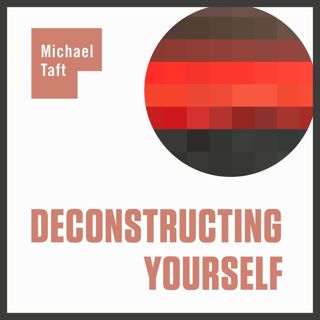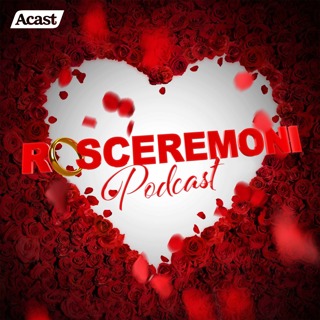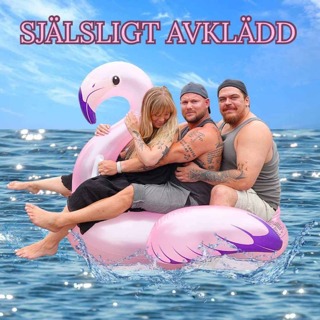
What Does Dreaming Have to Do with Meditation? with Andrew Holecek
Host Michael Taft speaks with Dream Yoga expert Andrew Holecek about how the dream state (and dreamless sleep) can effect meditation practice. Topics include: the fantasy-filling model of lucid dreaming vs. spiritual awakening; dream yoga, sleep yoga, and Bardo yoga; the love of napping, meditation in a dream or in dreamless sleep; reification as the "original sin of Buddhism"; lucid dreaming for meditators; and much more.Andrew Holecek has completed the traditional three-year Buddhist meditation retreat and offers seminars internationally on meditation, dream yoga, and the art of dying. He is the author of many books, including Dream Yoga: Illuminating Your Life Through Lucid Dreaming and the Tibetan Yogas of Sleep. Andrew is masterful at joining the wisdom traditions of Asia with the knowledge of the West. He holds degrees in classical music, biology, and a doctorate in dental surgery. Andrew Holecek's websiteSee Privacy Policy at https://art19.com/privacy and California Privacy Notice at https://art19.com/privacy#do-not-sell-my-info.
23 Okt 20191h 7min

Deconstructing Sensory Experience, with Michael Taft
In this episode, host Michael Taft shares a map of deconstructing sensory experience. This is intended to help orient you to your vipassana meditation practice; helping you to understand where you’re at, where you’re going, and what to look for next. A basic map of vipassana.Note: this is only a map, only a model. Just like a menu is not food, this model is not claiming to be reality. It’s just a handy way to help you orient your practice.This model doesn’t count for nondual meditations, high-concentration/jhana practice, etc. It is only to help you with your vipassana practice.Very important: the inclusion of “Cessation” as level 5 doesn’t mean that level 5 is the final goal of practice. It’s just something that can happen, and is included for the sake of completeness.These are not discrete or digital stages. They are analog, and shade into one another. Each stage is desirable and useful for various things. No stage is somehow better than another.In vipassana practice, however, we are usually attempting to tranverse the stack from stage one to stage four. Stage five may or may not be something that happens.When our practice is very skilled, we can also tranverse the stack from bottom to top (4 -> 1) and do what we might call “nondual vipassana” or something akin to many Mahamudra practices. Summary of StagesStage 1 - Conceptual - Thinking about sensory experience objects using words. Stage 2 - Phenomenal Object - Contacting the phenomenology of sensory experiences in the form of objects. Stage 3 - Flow / Change - Contacting the phenomenology of sensory experiences as vibration, waves, or change. Stage 4 - Pure Awareness - Noticing awareness itself with no content. Stage 5 - Cessation - Sudden collapse of awareness.Support the Deconstructing Yourself podcast via Patreon.See Privacy Policy at https://art19.com/privacy and California Privacy Notice at https://art19.com/privacy#do-not-sell-my-info.
24 Sep 201943min

Vajrayana, Engineering, and Jiu Jitsu, with Rin’dzin Pamo
Host Michael Taft speaks with Vajrayana teacher Rin’dzin Pamo about Vajrayana meditation practice currently, adapting practices for our times, their practice of The Mind Illuminated, the role of the guru in practice, how meditation practice is like engineering (and Jiu Jitsu), and much more.Rin’dzin Pamo (also known as Charlie El Awbery) is a British born Vajrayana practitioner living in the US. They were an apprentice in the Aro gTér tradition of Tibetan Buddhism for twenty years and are an experienced Dzogchen meditator and mentor. Rin’dzin received the London School of Economics Fei Xiaotong prize for their Masters research on the Chinese tech industry. They worked on international development projects in India, Africa and the Middle East and as a program director for Amnesty International. Rin’dzin writes at VajrayanaNow.com and has recently been publicly journaling their progress through Culadasa’s system The Mind Illuminated. Help to support the Deconstructing Yourself podcast at Patreon.See Privacy Policy at https://art19.com/privacy and California Privacy Notice at https://art19.com/privacy#do-not-sell-my-info.
13 Aug 201957min

Why Metadharma?, Pt. 2, with Vincent Horn
Why Metadharma? is an unusual episode of the Deconstructing Yourself podcast, in that it’s Part 2 of a joint interview between Vince and Michael Taft. Part 1 appeared on the Buddhist Geeks podcast recently, and they continue the conversation here.The topic of these discussions is a subject that both speakers are actively developing, called “metadharma.” In brief, metadharma refers to the many different ways that the dharma is being adapted, remixed, and redefined to meet the unique challenges and opportunities of the current moment.Vincent Horn is part of a new generation of teachers & translators exploring dharma in the age of the network. A computer engineering dropout turned full-time contemplative, he spent his 20s co-founding the ground-breaking Buddhist Geeks Podcast, while simultaneously doing a full year, in total, of silent retreat practice. Vincent began teaching in 2010 having been authorized in both the Pragmatic Dharma lineage of Kenneth Folk, and by Trudy Goodman, guiding teacher of InsightLA, in the Insight Meditation tradition. Vincent has been called a “power player of the mindfulness movement” by Wired magazine and was featured in Wired UK’s “Smart List: 50 people who will change the world.” He currently lives in the Blue Ridge Mountains outside of Asheville, North Carolina with his partner Emily Horn and their son Zander.More about the Buddhist Geeks farm here.Listen to David Chapman talk about metasystematicity here.See Privacy Policy at https://art19.com/privacy and California Privacy Notice at https://art19.com/privacy#do-not-sell-my-info.
31 Juli 201935min

Meditation, Emotions, and the Bio-Emotive Framework with Douglas Tataryn
Host Michael Taft speaks with clinical psychologist and life coach, Douglas Tataryn, Ph.D. about meditation and psychology. Topics include his work with meditation teachers such as Culadasa, the “wake up, clean up, grow up, and look around” model, Wilber’s integral model. working with trauma and the dark night, and his system of emotional processing known as the Bio-Emotive Framework.Douglas Tataryn received his PH.D. in 1991 and worked as a professor for 10 years in epidemiology and psychosocial oncology. In 2001 he entered private practice where he applied and continued evolving what he now refers to as the bio-emotive framework, a new way of understanding the emotional system and its unappreciated role in many of our most common mental health disorders. Doug began what became a very intensive meditation practice back in 1975 and he and his wife receive and give teachings within the Namgyl Rimpoche stream of the Karma Kagyu lineage.ResourcesDr. Tataryn’s website has lots of resources, some free and some for pay: https://bioemotiveframework.comYou’ll find thought provoking interviews and video recordings with Douglas Tataryn at this link: https://bioemotiveframework.com/blog/Upset about a recent event? Use one or both of these forms to turn that upset into a better understanding and expression of how you are feeling about it. 1. This is help you find the inter-personal feelings about the situation: http://tinyurl.com/BEFstress2. This form will guide you through the core feelings related to the situation. We tend to take core feelings very personally and often feel we are the feelings instead of being someone who is having those feelings: Http://tinyurl.com/BEFCoreHear Culadasa speaking about his work with Douglas Tataryn here.Listen to more more about meditation and psychology with Tucker Peck.Support the Deconstructing Yourself podcast via Patreon.See Privacy Policy at https://art19.com/privacy and California Privacy Notice at https://art19.com/privacy#do-not-sell-my-info.
14 Juli 20191h 20min

Loch Kelly on Awareness, Freedom, and Effortless Mindfulness
Host Michael Taft speaks with Loch Kelly on nondual practices, contemporary forms of ancient awareness techniques, dzogchen, mahamudra, advaita, the role of psychotherapy in awakening, the need—or not—for a guru, open-hearted awareness, internal family systems therapy, and more.Loch Kelly is an author, meditation teacher, psychotherapist, and founder of the non-profit, Open-Hearted Awareness Institute. Loch teaches in a non-sectarian lineage based in the earliest non-dual wisdom traditions, modern science, and psychotherapy.Loch Kelly’s WebsiteSupport the Deconstructing Yourself podcast via Patreon.Show Notes:00:43 - Intro03:05 - Loch’s meditation background06:59 - Shifting from concentration practice to choiceless awareness practice10:01 - Meeting Tulku Urgyen Rinpoche12:23 - The experience vs explanation of ‘pure awareness’ in different traditions14:38 - Mahamudra15:31 - The dualism in stopping halfway at ‘pure/spacious awareness’17:54 - Recognition vs realization20:02 - The possibility of ‘awake awareness’ in different traditions22:53 - Contacting nondual awareness24:00 - How can awareness be aware of awareness, if you are not aware from awareness?28:10 - The contemporary teaching of unhooking ‘local awareness’34:42 - The vipassana model/map vs natural awakenings37:42 - Upgrading the mahamudra map and instructions (from ‘pure awareness’ to ‘awake awareness’) 43:07 - The four or five levels of the mind in mahamudra (1. everyday mind, 2. subtle mind, 3. pure awareness, 4. simultaneous mind, 5. open-hearted awareness/bodhicitta)46:13 - Thoughts and emotions in ‘open-hearted awareness’50:09 - Teaching moving from ‘spacious awareness’ to ‘awake awareness’56:02 - Wonder, freedom, and joy in wisdom mind01:02:14 - Postural yoga and pranayama in mahamudra01:05:18 - Integrating ‘one-pointed awareness’ into the ‘field of awareness’01:08:37 - Psychotherapy as a “preliminary” practice01:10:42 - The “crazy yogi”: waking up without growing up01:13:32 - The healing power of ‘open-hearted awareness’ in IFS (Internal Family Systems)01:16:40 - The role of the guru in different traditions; “energetic transmission”01:21:37 - Don’t stop halfway and come on in the water!01:27:30 - Teaching vipassana in a nondual way01:32:47 - Loch’s latest teaching- and personal inquiries01:35:14 - OutroWhat does nondual mean?See Privacy Policy at https://art19.com/privacy and California Privacy Notice at https://art19.com/privacy#do-not-sell-my-info.
3 Juli 20191h 35min

Culadasa on Meditation and Therapy
In this special episode, Culadasa talks about the domains of meditation and psychotherapy, where their areas of effectiveness overlap and where they don’t. He also shares a powerful personal story of his own emotional processing work after awakening—why it was needed and how it helped.Culadasa has been practicing Buddhist meditation for over four decades, and is the director of Dharma Treasure Buddhist Sangha, where he teaches meditation and Buddhism from a modern, progressive scientific perspective. His groundbreaking book, The Mind Illuminated is a modern road map to Buddhist meditation for a Western audience which combines age-old wisdom teachings of the Buddha with the latest research in cognitive psychology and neuroscience.Dharma Treasure website: https://dharmatreasure.org/Dr. Douglas Tataryn’s website: The Bio-emotive FrameworkShow Notes0:25 – Introduction2:54 – Michael opens up the intended direction of this show, what meditation can improve and heal and what psychology can improve and heal, where the two might overlap, and places that maybe only psychology can handle.4:35 – Culadasa begins discussing how inner conflicts and baggage are brought to the surface and handled in the meditation system described in The Mind Illuminated.10:47 – Minimizing psychological distress when beginning to have insight experiences.13:52 – Different effects of samatha versus vipassana on noticing and working with difficult psychological material; how the arising of such material may unfold in Culadasa’s meditation system.19:48 – The necessity of sati and introspective awareness in samatha practice to eliminate dullness and trigger purifications; how to progress from attending to bodily sensations, to emotions, to any associated mental content.23:32 – Practicing samatha in the way it was intended to be practiced is training the mind in vipassana at the same time.27:25 – Spiritual bypassing – how people with high meditative skill can fail to notice harmful behavior patterns; how the changes that awakening brings can make it easier to bypass difficult material.33:23 – Culadasa’s health journey and first meeting with an integral oncologist.41:32 – Example of using bio-emotive therapy and noticing somatic reactions; how Culadasa’s practice had downweighted negative emotions and this type of therapy helped to reconnect with them.45:14 – How path attainments affect the sense of self; how older structures in the brain linked up with newer emotional structures and created the sense of self.50:00 – How certain patterns became established in Culadasa’s life and were then uncovered with bio-emotive therapy; viewing these patterns as different personalities.58:34 – Repeating unhealthy patterns despite having an advanced meditation practice; how the Dharma itself can provide some rationalization for such behaviors when their root in unresolved psychological material isn’t recognized.1:04:04 – Culadasa describes his current status, feeling highly resolved with his patterns after becoming aware of and working with them, and essentially being in remission from cancer.1:05:34 – Psychology as an integrated part of the practice of meditation; the possibility of merging psychology and Dharma in the West; the importance of somatic work and treating the body/mind as one unit.1:09:39 – Differences in how forms of Buddhism have treated the area of emotions; using current science to go beyond what previous traditions have had access to; taking people beyond normal states of dysfunction to states of minimal to no dysfunction.1:14:25 – OutroYou can read a transcription of the entire show here.You can support the creation of future episodes of this podcast by contributing through Patreon.See Privacy Policy at https://art19.com/privacy and California Privacy Notice at https://art19.com/privacy#do-not-sell-my-info.
2 Juni 20191h 18min

Meditation for the End of Civilization, with Rick Hanson, Ph.D.
Host Michael W. Taft speaks with bestselling author and meditation teacher Rick Hanson about how to maintain resilience in the face of the coming potential collapse of civilization, the problem with agriculture, meditation methods to build inner strengths, Rick’s upcoming book Neuro-dharma, and more. Rick Hanson, PhD, is a psychologist, Senior Fellow of the Greater Good Science Center at UC Berkeley, and New York Times best-selling author. His books include Buddha’s Brain, Hardwiring Happiness, and the new book Resilient. Rick began meditating in 1974, has trained in several traditions, and teaches at meditation centers around the world.Show Notes0:25 – Introduction1:56 – Michael talks about Rick’s background in meditation and his public persona, then introduces the topic for this episode, the potentially apocalyptic future7:30 – How growing strengths and resources inside, and turning states into traits, gets trivialized as ‘positive psychologizing’12:59 – Punctuated equilibrium: things tend to go along steadily until the bottom drops out; knowing that apocalyptic scenarios can occur, giving thought to what one can do that’s rational, given one’s values, resources, karmas and responsibilities in life16:54 – The game-changing threats of thermonuclear exchange, runaway AI, totalitarian regimes exploiting surveillance technology and genetic engineering, climate change21:03 – Working in practice with impermanence and remembrance of death26:36 – “Time held me green and dying, though I sang in my chains like the sea” – claiming to oneself again and again, in the face of forces that make one feel powerless, what one can do inside one’s own mind; counteracting learned helplessness35:09 – The balance of compassion and equanimity in facing death and environmental destruction; different paths to developing compassion and equanimity46:15 – How the move away from living in small hunter-gatherer bands changed people’s relationship with governance; the lack of common welfare, common truth, and common justice54:33 – Reclaiming healthy human politics; valuing truth and shutting down attacks on truth; encouraging the pooling of resources among nonprofits with a common cause1:05:04 – Rick’s upcoming book, Neuro-dharma; short description of the seven practices in the book which stimulate and strengthen the underlying neural basis for wholesome, transformative qualities of mind1:14:25 – OutroYou can help to create future episodes of this podcast by contributing through Patreon.See Privacy Policy at https://art19.com/privacy and California Privacy Notice at https://art19.com/privacy#do-not-sell-my-info.
21 Apr 20191h 13min





















